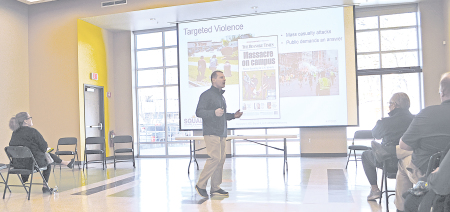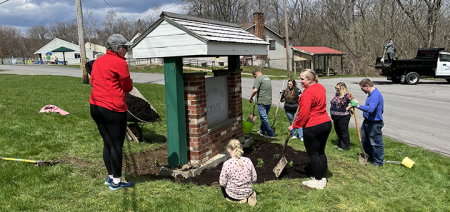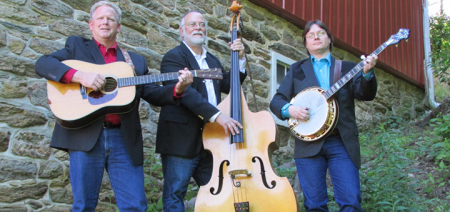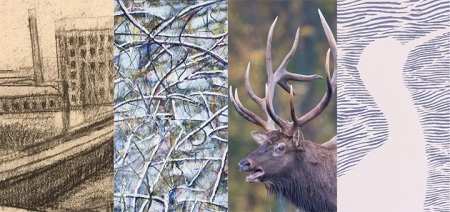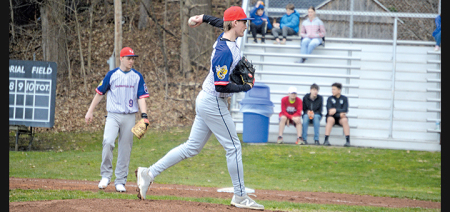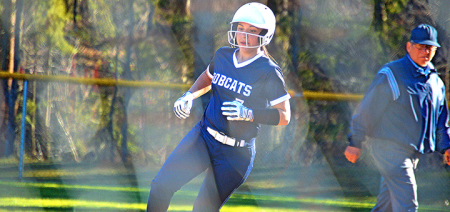Parking Space: A Love Story! Chapter 24 - All Hell Breaks Loose: Part 1
Published:
May 28th, 2021
By:
Shelly Reuben

Eventually, even people stymied by blizzards get around to returning phone calls, and on Friday, January 12th, Cadogan McClure, Richard Fix, and Jimmy Christmas did exactly that.
More or less.
Cadogan, of course, never personally returned calls; that was done by his executive assistant. Or, rather, by one of the many he had employed over the years. He went through executive assistants like a rat gnawing through insulation, and all but one would have loved to publish exposés about their personal experiences, but could not, because Cadogan had made them sign confidentiality agreements before they were hired. In fact, though, fifteen out of sixteen of Cadogan McClure’s executive assistants hated his guts. Still working for him at that time was Daisy Dalrymple, the sixteenth.
With her short blond hair, golden-amber eyes, and small, baffled mouth (the entire time that she worked for Cadogan, it seemed to be saying, “Huh?”), Daisy had come to him right out of college with a naïve enthusiasm that hid, beneath an overall aspect of being a late-blooming cheerleader, a steely resolve.
Before she was hired, Daisy had never seen a Cadogan McClure documentary, but in the job posting, she read that he was a “great humanitarian,” and so she enthusiastically applied for the position.
Poor Daisy Dalrymple.
It was she who listened to the message that Hector Van Hooft left on her boss’s answering machine. It was she who returned the disgruntled chef’s telephone call. It was she whom Hector briefed on the bizarre behavior of an empty parking space in front 1582 Chestnut Avenue. It was she who was invited to attend a press conference at that location at 4:00 p.m. on Friday, January 12th. And it was she who discovered that a single unidentified female could enter and leave the parking space at will.
Daisy reported the details of that conversation to Cadogan McClure.
His response was about what you would expect from King Midas if someone had dumped a bag of gold into his lap. Cadogan excitedly and immediately began to outline plans to start a new documentary film about (working title) LOCKOUT: FOR MEMBERS ONLY, and to send protestors that very evening to “do their thing” before, during, and after the press conference. He dictated detailed instructions to Daisy about a second and more dramatic demonstration to occur on Chestnut Avenue the following day, and told her that he would remain for a while in the office to make some calls. She (Daisy) should attended the press conference on his behalf, but he would arrive with his van and videographer in due course.
Richard Fix, community planning board member and aspiring governor, had also returned Hector Van Hooft’s telephone message.
He and his wife Janet (shorter than he by three-quarters of an inch) lived with their children five blocks from his office at City Hall. He did not own a car and he did not know how to drive, so he usually walked to work. When he could not walk to a business meeting or a lunch date, he took the subway or a cab. Therefore, although he had a vague sense of what it might mean to search for parking in The Big City, he had no visceral feelings on the subject.
As a consequence, Hector van Hooft’s press conference did not really interest him. His primary motive for deciding to attend was self-promotion. He had been housebound since the blizzard struck at the beginning of the week, and like many public figures who have come to expect constant media exposure, Richard Fix was never quite sure he was alive unless his name appeared in a newspaper, a blog, or was mentioned on the radio or on TV.
Richard Fix was adept at appearing at sites of disturbances (if there were any), celebrations (if there were any), or catastrophes (if there were any) when and wherever they might occur. Back issues of newspapers, magazines, radio broadcasts, and TV talk shows are rife with audios and videos of Richard the Short trying to look ever so tall as he stood beside politicians with greater altitude and similar objectives.
Since his political raison d'etre was to facilitate conciliation, Richard did not feel that he had to research the purpose of any event before he arrived. As to this one, which he knew had something to do with parking...how controversial could a parking space be?
He had been driven to the press conference by an aide and dropped off at the intersection of 83rd Street and Chestnut Avenue. The expression on his face when he stepped out of the vehicle was benign, and he was confident that, regardless of the dispute, he could diffuse it. And so, as he walked north toward 84th Street, he was both disconcerted and disheartened to see scattered groups of people moving toward an apartment building on the East side of the road. Among them were journalists, videographers, nobodies, somebodies, and twenty or thirty scruffy characters carrying posters bearing slogans such as Parking is Racial Politics, Free Parking for All, Male Dominated Parking Must Go, Parking Spaces Matter, Parking Power, and so on.
Richard increased his pace, knowing in his heart of hearts that whatever the problem might be, and there clearly was a problem, his solution – as always – would be to “Put aside your differences and shake hands.”
However, even though the situation had been explained to him, and despite his belief that all issues were relevant and all difficulties could be resolved, he could not make himself care; he still had absolutely no idea what the parking space protesters were protesting about. So half an hour later, after issuing a brief statement to a man holding a microphone whose face he did not recognize – “I’m sure this could all be settled over a cup of coffee and a bagel” – he left the block and went home.
Last of the three invited people who showed up at Hector Van Hooft’s press conference was TV News intern Jimmy Christmas. Although Jimmy was still at that phase of his career where he believed honest reporting could change the world, he doubted that a dispute over a parking space could involve world-shattering ethical considerations, or that it might be the tiniest bit newsworthy. But nothing (other than snow) was happening that day in The Big City, so he walked crosstown from his television station with an open mind and the batteries fully charged on his Sony AX2000 video camera.
The first thing that Jimmy Christmas saw when he got to Chestnut Avenue was a stylish silver-haired lady leaning against a perfectly restored turquoise 1968 Cadillac Coupe de Ville. The second was a man standing impatiently on a curb overlooking an empty parking space. Realizing that he had arrived before any of the other reporters, Jimmy tore his eyes away from the woman and the car, and approached the man at the curb.
Copyright © Shelly Reuben, 2021. Shelly Reuben’s books have been nominated for Edgar, Prometheus, and Falcon awards. For more about her writing, visit www.shellyreuben.com
Author: Shelly Reuben - More From This Author
Comments
